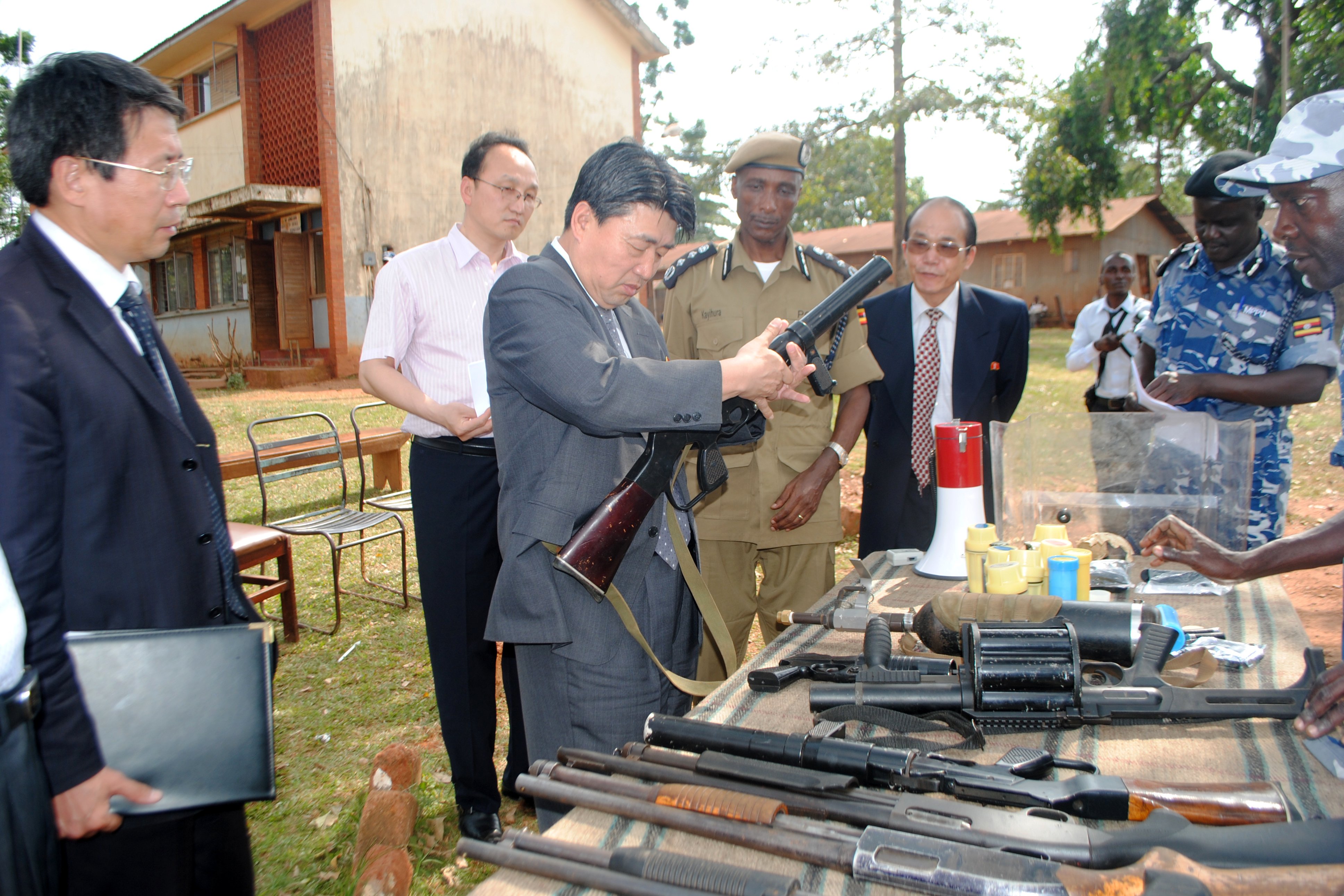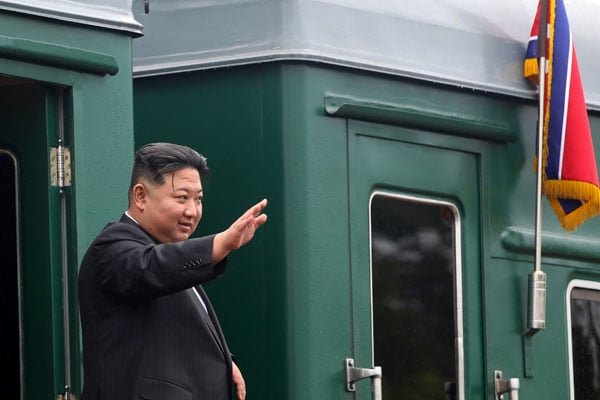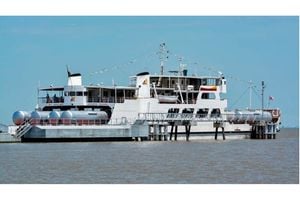Prime
Has North Korea finally bid farewell to Uganda?

What you need to know:
- A year after Amin came to power, in April 1972, he sent a high-level military delegation which partook in military celebrations in Pyongyang.
- During this visit, three agreements were reached between Uganda and North Korea, covering military exchanges, sales of weaponry, and exploring the potential of opening a military construction plant in Uganda.
- In Uganda’s case, this friendship has outlasted at least five presidents. North Korea has consistently acted as a benefactor to Uganda, especially in supporting the country’s police and military by providing them with weapons and personnel training, Stephen Kafeero writes.
For decades, Uganda has maintained a semblance of cooperation with North Korea despite pressure from the West, led by the United States. However, will Pyongyang’s announcement of the closure of its embassy in Kampala mark the final break in public engagement between the two friendly countries?
The history of this relationship suggests that North Korea, officially known as the Democratic People’s Republic of Korea (DPRK), is unlikely to completely sever ties with Uganda. The two countries have actively worked together to undermine international pressure against their cooperation.

Birds of a feather
Both Uganda and North Korea, which have in the past circumvented United Nations sanctions and other pressures, downplay the end of the post-independence friendship. From the outset, one thing is clear: North Korea’s military assistance has consistently featured in Uganda’s foreign relations for decades.
In Uganda’s case, this friendship has outlasted at least five presidents. North Korea has consistently acted as a benefactor to Uganda, especially in supporting the country’s police and military by providing them with weapons, weapon repair services, and personnel training. Meanwhile, state agencies, companies, and citizens of North Korea have also benefited from doing business in Uganda.
The decision to close North Korea’s embassy in Kampala was announced after a meeting between President Museveni and North Korean ambassador Jong Tong Hak.
“Ambassador Jong informed the president that North Korea has taken a strategic measure to reduce the number of embassies in Africa, Uganda inclusive, in order to increase efficiency of the country’s external institutions,” a State House statement reads.
“Our good friendship will continue and will be further strengthened and developed,” Jong was quoted as saying, adding that diplomatic links would now be handled through its embassy in Malabo, Equatorial Guinea.
Mr Jong hailed President Museveni “for consistently supporting the Korean government in enforcing its peaceful efforts to realise a harmonious unification of the Korean Peninsula”, the statement added.
“Although the Korean Peninsula situation is still intense, our government is trying to stabilise the situation. That is why it continues to build up its strength to protect its territory and people,” he said.
President Museveni did not say much from the official communication that was released. A statement on Twitter, now X, simply congratulated the outgoing envoy.
“I met the outgoing Ambassador of the Democratic People’s Republic of Korea, Mr Jong Tong Hak, who paid me a courtesy call at State House, Entebbe. I thank him for his ten-year service in Uganda and wish him good luck”.

Ironically, Uganda’s cooperation with North Korea will continue through Malabo, Equatorial Guinea where Uganda has military presence.
Uganda secured a mandate to deploy soldiers in batches to secure the President of Equatorial Guinea, the first family, and other key principal installations and mentor the country’s military forces. The Ugandan troops that were quietly deployed to the West African country have been on mission since 2016.
President Teodoro Obiang Nguema Mbasogo is Africa’s longest serving ruler and came to power in an August 3, 1979, coup. In March, Uganda dispatched its first export of military wear to Equatorial Guinea which included 5,400 cartons of army uniforms and accessories.
A long history
North Korea’s recorded relationship with Uganda can be traced to the coming to power of president Idi Amin following a coup against Milton Obote’s government. A year after Amin came to power, in April 1972, he sent a high-level military delegation which partook in military celebrations in Pyongyang.
During this visit, three agreements were reached between Uganda and North Korea, covering military exchanges, sales of weaponry, and exploring the potential of opening a military construction plant in Uganda.
An October 1991, US Defence Intelligence Agency report notes North Korea and Uganda’s relationship deepened in the Amin era focusing on the military.
The cooperation would continue post-Amin era. Obote would turn to the North Koreans in an attempt to contain the National Resistance Army (NRA) led by Yoweri Museveni.
A May 1, 1982, Central Intelligence Agency (CIA) declassified report notes that: “The Tanzanian police alone could not block a determined coup attempt, and Tanzanian president Nyerere-who is weary of his involvement in Uganda and plagued by his own economic problems-would be reluctant to send Tanzanian troops back to Uganda to save Obote Although Obote cannot hope to get enough foreign security help to replace entirely the departed Tanzanians, he has been partly successful. A handful of North Korean military advisers are in Uganda providing training, and some Ugandan soldiers have gone to North Korea for training.”
Obote had earlier on crafted a relationship with North Korea after he visited P’yongyang later in 1981. The visit resulted in multiple cooperation accords in a variety of fields including education, technology, culture, and most importantly, the military. While important, the North Korea help did not help Obote in winning the NRA Bush War.
“While Obote had fled the country, his military largely remained intact and was now under the control of Museveni. In gaining control of the Ugandan military, Museveni gained control of swaths of North Korean weaponry that the Ugandan military had acquired under his two predecessors. This led to Museveni requesting that North Korean officials travel to Uganda and provide training on how to utilise North Korean weaponry,” writes R. Maxwell Bone, a writer and researcher on African Affairs and International Politics.
The cooperation would extend beyond the training on how to utilise the North Korean weaponry to training the police in martial arts and developing marine unit.
North Korea also continued to support President Museveni’s regime post-cold war. Less than five years into power, President Museveni visited Pyongyang and met with Kim Il Sung, the country’s leader at the time and grandfather of current North Korea leader, Kim Jong Un.
“While North Korea continued providing assistance to Uganda for both marine units and local police personnel, the cooperation between the two countries began to expand into arms development. This is due to the fact that in the 1990s the government of Uganda placed an emphasis on developing a domestic arms production capability to reduce its reliance on foreign military assistance,” Mr Bone adds.
Unconfirmed reports indicate the North Koreans were instrumental in setting up Uganda’s ammunition factory at Nakasongola.
In 2004, Andrea Berger in her book Target Markets: North Korea’s Military Customers writes that residents near the Nakasongola Complex complained about the prevalence of North Koreans. Their main grievance, she adds, was that North Koreans living in Luweero Industries land had been given unlimited permission to fish in the nearby lakes and had depleted fish stocks in the process.
This she says suggests the North Koreans remain involved in the day to day operations of the facility until at least 2014.
“Numerous reports in the years after its opening indicted that Nakasongola was operated with the assistance of both China and North Korea, though other reports indicate it may have only been China. Given North Korea’s history of facilitating weapons repair in Uganda since the 1970s, it is plausible that North Koreans continued to be involved in Ugandan defence affairs in this way,” Ms Berger writes.
Banned
In 2009, the UN passed resolution 1874 which banned all military imports from North Korea after the country’s nuclear tests. The resolution directly affected Uganda military cooperation with North Korea because this was key in the countries relationship.
A 2010 report by the UN panel of experts on the enforcement of the sanctions found Uganda in violation of the resolution having continued cooperation with North Korea.
At the time, North Korea’s public activities in Uganda were mostly manifest in Uganda Police. In June 2013, North Korean deputy minister for internal affairs Ri Song Chol visited Uganda. Besides housing, Gen Kale Kayihura, the Inspector General of Police, cited some other areas of cooperation with North Korea including basic and specialised training particularly in martial arts and the marine force.
In the same year, former Vice President Edward Ssekandi travelled to Pyongyang as a guest of honour at the 60th Anniversary of the Korean War Armistice. North Korea’s then president of the Presidium of the Supreme People’s Assembly, Kim Yong Nam reciprocated the visit and met President Museveni with a message from Kim Jong Un.
Enter South Korea
As the North Korea diplomatic presence exits Uganda, its arch-rival maintains a strong presence in the country which it has been consolidating.
In 2016, Park Geun-hye became the first South Korean leader to visit Uganda. During her visit, more than 10 agreements were signed between the two countries. These agreements were signed on the condition that Uganda end its cooperation with North Korea, which Uganda agreed to do.
Former Foreign Affairs minister Sam Kutesa announced the official end to the cooperation. Subsequent US and UN pressure including the passage of United Nations Security Council Resolution 2371 which sought to force all countries to universally cease cooperation with North Korea forced Uganda’s hand.
During the 72nd session of the UN General Assembly President Museveni specifically stated that Uganda was abiding by the UN sanctions on North Korea, but also expressed his fondness for the country and the cooperation they had in the past. It is this solidarity that Mr Jong paid tribute to President Museveni.
“My government still vividly remembers your famous speech at the UN General Assembly in 2017 which you made before the world as you expressed your gratitude to our government, North Korea, such a speech made us happy, and we are grateful,” Mr Jong told President Museveni on Monday.
With pressure mounting from the US and its allies including South Korea, Uganda submitted a report to the UN Security Council in January 2018 which outlined multiple actions it had taken to curb ties with North Korea including cancelling entry permits of North Korean doctors and air force instructors.
Accusations that Uganda continues to cooperate with North Korea in some form despite the UN sanctions continued even with the country’s public commitment to cease doing so. A 2018 story by the US based publication, The Wall Street Journal provided a comprehensive account of how Uganda persistently engaged with North Korea, thereby violating UN sanctions.
The article cited a UPDF officer who stated, “we never terminated our connections”, and alleged that Ugandan soldiers were strictly instructed not to discuss or capture images of North Koreans.
This same report delved into how the cooperation between Uganda and North Korea extended beyond the military domain. North Korean mining and construction companies, operating in Uganda, altered their official registration in Uganda’s records to appear as Chinese or simply “foreign.” Meanwhile, North Korean personnel continued to work in Ugandan hospitals.
President Museveni’s regime has in the past made it clear that it will not abandon its ties to North Korea. In 2014, former Foreign Affairs Permanent Secretary told The East African that Uganda will not sever relations with North Korea because of the sanctions on Pyongyang.
“Countries are not like people. The fact that you have an enemy does not mean he is our enemy,” Mr Mugume said.




